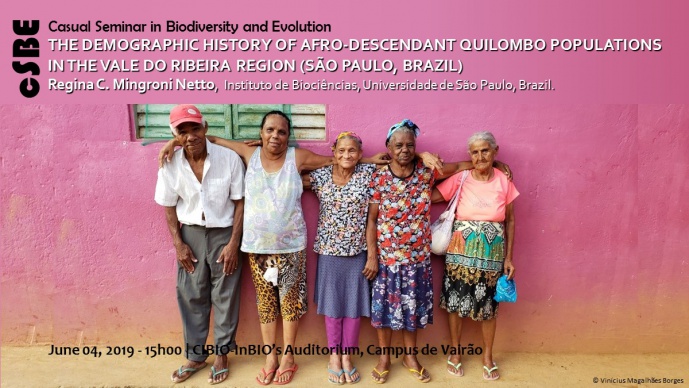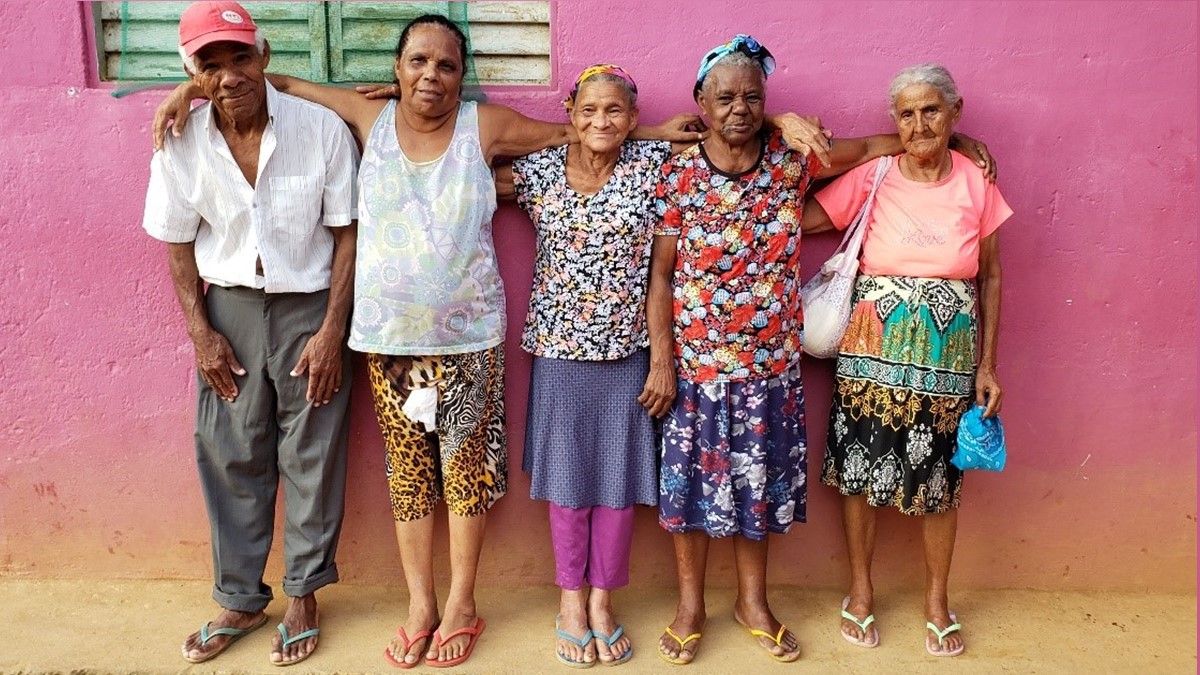THE DEMOGRAPHIC HISTORY OF AFRO-DESCENDANT QUILOMBO POPULATIONS IN THE VALE DO RIBEIRA REGION (SÃO PAULO, BRAZIL)

CASUAL SEMINAR IN BIODIVERSITY AND EVOLUTION

During the Colonial Period, about 4 million Africans were taken to Brazil as slaves. Throughout this period, many runaway, abandoned and freed slaves founded small isolated rural communities, known as Quilombos. In Brazil, we have nearly 3,500 remnants of quilombos and, in the state of São Paulo, the majority of Quilombo remnants are located in the Vale do Ribeira region. Vale do Ribeira was historically inhabited by Native Americans who had their first contact with colonizers at the beginning of the 16th century. At the end of the 16th century the first Africans slaves arrived and the region became a center for labor in the mines. With the interruption of gold exploitation, slaves and their descendants founded the Quilombos. The aim of the presentation is to report on genetic studies about admixture and genetic diseases performed by our team since 2000. We demonstrated that admixture is sex biased, since paternal contribution is predominantly European, and the maternal is mainly African and Native American. Uniparental markers located in the Y chromosome and mtDNA revealed the origins of the African component and of the European component in the Quilombo populations. Besides, our results indicated a strong bottleneck for all ancestries near seven generations ago, near 1800-1850, which coincides with the historical records about the foundation of the Quilombos.
Regina Célia Mingroni Netto is Associate Professor at the Instituto de Biociências, Universidade de São Paulo, Brazil. She obtained the Bachelor degree in Ciências Biológicas from the Universidade de São Paulo, Brazil (1984), and got the PhD degree in Genetics from the Universidade de São Paulo, Brazil. (1994). She has been a professor at the Instituto de Biociências since 1996, where she has developed research focusing on human molecular genetics, acting on the following subjects: finding genes and mechanisms of mutation in non-syndromic and syndromic hearing loss, population genetics of African-derived Brazilian populations, both from the point of view of admixture studies as well as with the aim of mapping susceptibility genes related to complex diseases, such as hypertension and obesity.
[Host: Jorge Rocha, Human Evolutionary Genetics]
Image credits: Vinícius Magalhães Borges